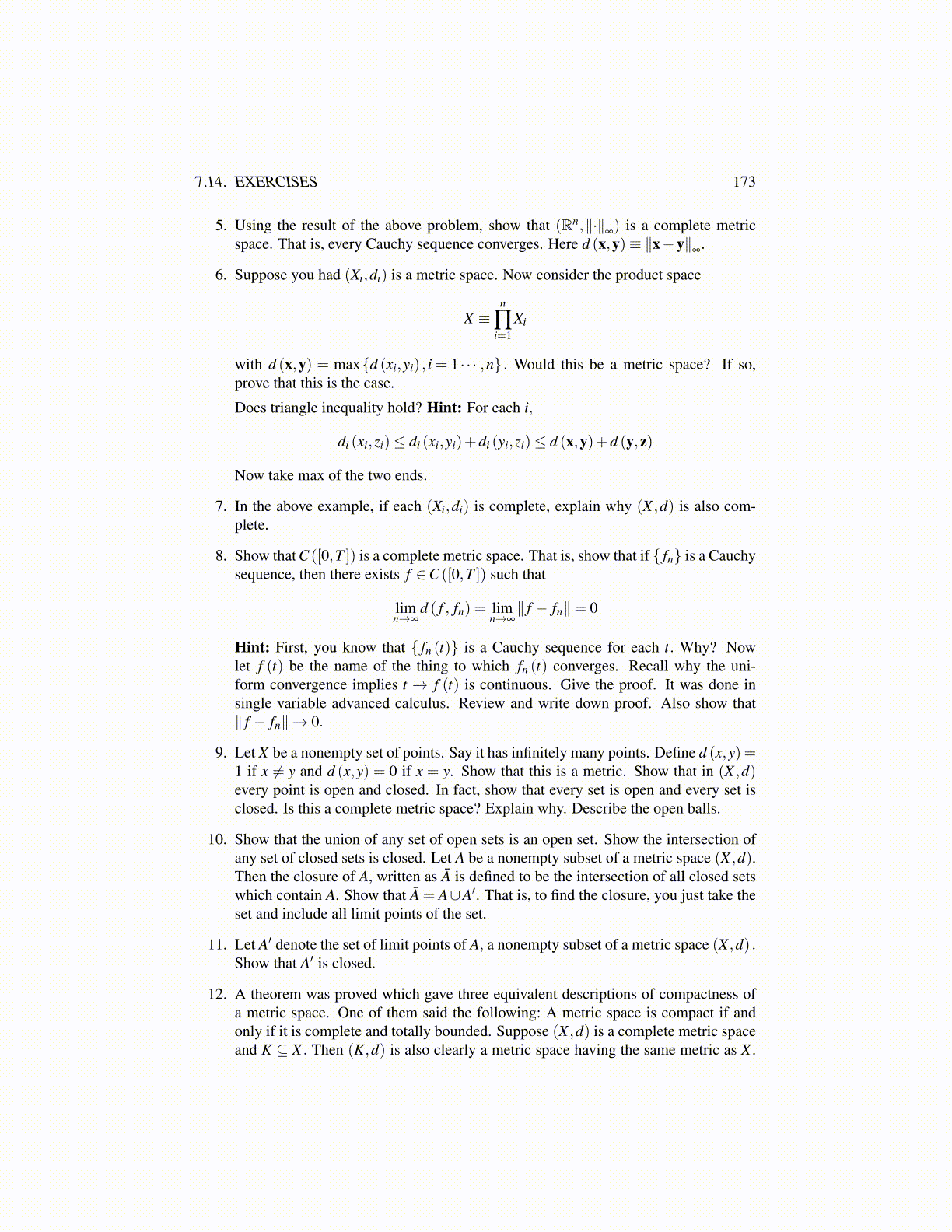
7.14. EXERCISES 173
5. Using the result of the above problem, show that (Rn,∥·∥∞) is a complete metric
space. That is, every Cauchy sequence converges. Here d (x,y)≡ ∥x−y∥∞
.
6. Suppose you had (Xi,di) is a metric space. Now consider the product space
X ≡n
∏i=1
Xi
with d (x,y) = max{d (xi,yi) , i = 1 · · · ,n} . Would this be a metric space? If so,prove that this is the case.
Does triangle inequality hold? Hint: For each i,
di (xi,zi)≤ di (xi,yi)+di (yi,zi)≤ d (x,y)+d (y,z)
Now take max of the two ends.
7. In the above example, if each (Xi,di) is complete, explain why (X ,d) is also com-plete.
8. Show that C ([0,T ]) is a complete metric space. That is, show that if { fn} is a Cauchysequence, then there exists f ∈C ([0,T ]) such that
limn→∞
d ( f , fn) = limn→∞∥ f − fn∥= 0
Hint: First, you know that { fn (t)} is a Cauchy sequence for each t. Why? Nowlet f (t) be the name of the thing to which fn (t) converges. Recall why the uni-form convergence implies t → f (t) is continuous. Give the proof. It was done insingle variable advanced calculus. Review and write down proof. Also show that∥ f − fn∥→ 0.
9. Let X be a nonempty set of points. Say it has infinitely many points. Define d (x,y) =1 if x ̸= y and d (x,y) = 0 if x = y. Show that this is a metric. Show that in (X ,d)every point is open and closed. In fact, show that every set is open and every set isclosed. Is this a complete metric space? Explain why. Describe the open balls.
10. Show that the union of any set of open sets is an open set. Show the intersection ofany set of closed sets is closed. Let A be a nonempty subset of a metric space (X ,d).Then the closure of A, written as Ā is defined to be the intersection of all closed setswhich contain A. Show that Ā = A∪A′. That is, to find the closure, you just take theset and include all limit points of the set.
11. Let A′ denote the set of limit points of A, a nonempty subset of a metric space (X ,d) .Show that A′ is closed.
12. A theorem was proved which gave three equivalent descriptions of compactness ofa metric space. One of them said the following: A metric space is compact if andonly if it is complete and totally bounded. Suppose (X ,d) is a complete metric spaceand K ⊆ X . Then (K,d) is also clearly a metric space having the same metric as X .